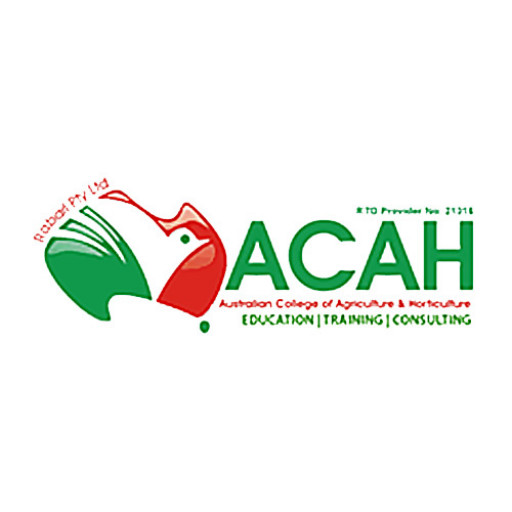The Production Nursery program offered by the Australian College of Agriculture & Horticulture provides students with comprehensive training and practical skills essential for a successful career in the nursery industry. This diploma focuses on the cultivation, management, and production of a wide variety of plants, including trees, shrubs, and flowering plants, catering to the demands of commercial nurseries and landscape companies. Throughout the course, students will gain a deep understanding of plant propagation techniques, soil preparation, pest and disease management, irrigation systems, and sustainable horticultural practices. The program emphasizes hands-on learning through practical workshops and industry placements, enabling students to develop real-world skills that are highly valued in the industry. Participants will learn about crop planning, nursery management, operation of nursery equipment, and marketing strategies to ensure a successful business. The course is designed for individuals who are passionate about horticulture and wish to build a career in production nurseries, landscape construction, or garden centre operations. Graduates of the program will be well-equipped to undertake roles such as production nursery worker, plant propagator, nursery manager, or horticultural consultant. The Australian College of Agriculture & Horticulture uniquely combines academic instruction with industry partnerships, ensuring students are prepared for the evolving demands of the horticultural sector. Enrolling in this program offers a pathway to gaining practical skills, industry connections, and a solid foundation for ongoing career development in the vibrant and essential field of plant production and nursery management.
Production Nursery program at the Australian College of Agriculture & Horticulture is designed to equip students with comprehensive knowledge and practical skills required for a successful career in the nursery industry. This program focuses on the key aspects of plant production, nursery management, pest and disease control, sustainable practices, and business operations within the horticulture sector. Students will learn about plant propagation techniques, soil management, pest and disease identification, and integrated pest management strategies to ensure healthy plant growth. The curriculum includes both theoretical coursework and hands-on training in modern nursery facilities, allowing students to develop their skills in real-world scenarios.
Throughout the program, students will gain insights into landscape design, plant care, irrigation systems, and environmental compliance, preparing them for roles such as nursery manager, planting specialist, or horticultural technician. The program emphasizes sustainable practices, including water conservation, integrated pest management, and environmentally friendly production methods, aligning with current industry standards and global sustainability goals. Students are encouraged to develop entrepreneurial skills, enabling them to start and run their own nursery businesses successfully.
The program also covers the use of technology in nursery production, such as automated irrigation, digital inventory management, and marketing tools. Students will have opportunities to engage in industry placements and internships, providing valuable industry connections and practical experience to enhance employment prospects upon graduation. With a strong focus on practical skills, industry relevance, and sustainability, the Production Nursery program prepares students to meet the challenges and opportunities of the modern nursery and horticulture industry confidently and competently.
The Production Nursery program at the Australian College of Agriculture & Horticulture is designed to provide students with comprehensive knowledge and practical skills necessary for a career in the nursery and horticultural industries. The course curriculum covers a broad range of topics including plant propagation, soil science, pest and disease management, irrigation techniques, landscape design, and sustainable production methods. Students are encouraged to develop hands-on experience through practical workshops, industry placements, and on-site nursery work, enabling them to apply theoretical concepts in real-world settings.
To successfully complete the program, students must meet the following requirements: first, they must undertake and pass a series of core subjects that establish foundational knowledge in horticulture science, plant identification, and environmental management. These core subjects typically include Introduction to Horticulture, Plant Propagation Techniques, and Plant Physiology. In addition to the core courses, students are required to choose elective units tailored to their interests within the horticulture sector, such as Advanced Nursery Management, Weed Control, or Sustainable Practices.
Furthermore, students are expected to complete a capstone project or industry placement, which involves applying learned skills to a real nursery or horticultural operation. This component aims to develop practical skills, problem-solving abilities, and industry connections. Assessment methods include written exams, practical demonstrations, project reports, and presentations, ensuring a balanced evaluation of theoretical knowledge and practical competencies.
The program emphasizes sustainability and environmental responsibility, encouraging students to adopt eco-friendly practices and innovate within the nursery industry. There is also a focus on business skills, including marketing, customer service, and operational management, to prepare students for entrepreneurial endeavors or managerial roles.
In addition to classroom instruction, students benefit from access to modern nursery facilities and equipment, as well as support from industry professionals. The program generally requires students to complete a specified number of study hours, including theoretical learning and practical training, amounting to approximately 600–800 hours over the duration of study. Upon successful completion of all coursework, assessments, and practical components, graduates are awarded a diploma or certificate in Production Nursery, qualifying them for employment in roles such as nursery assistant, production nursery worker, landscape gardener, or horticultural technician.
The Production Nursery program at the Australian College of Agriculture & Horticulture offers various financing options to assist students in managing the costs associated with their studies. Students can explore government assistance programs such as Austudy, Abstudy, or Youth Allowance if they meet specific eligibility criteria, which can provide financial support during their enrollment. Additionally, the college may provide payment plans or options for installment payments to make the tuition fees more manageable throughout the academic year. International students are generally required to pay tuition fees upfront, but they can also seek private scholarships or sponsorships offered by industry associations or horticultural companies. The college regularly updates its information regarding scholarships, grants, and financial aid programs, which students are encouraged to review on the official website or by contacting the administration directly. Financial assistance may also be available through third-party organizations that support agricultural and horticultural training, including government grants or industry-funded bursaries. Students are advised to carefully review the total cost of the program, including tuition, fees, textbooks, and materials, and consider their options for funding well in advance of commencing studies. The college provides guidance and counseling to help students identify suitable financial support pathways and to understand eligibility requirements and application procedures. Moreover, some students may choose to combine part-time employment with their studies, leveraging flexible schedules to offset educational expenses. The university’s commitment to accessible education means that numerous resources are dedicated to helping students find financial solutions tailored to their individual circumstances. Overall, the Production Nursery program aims to facilitate student participation by offering comprehensive information on available financial aid options, ensuring that all eligible students can pursue their educational goals without unnecessary financial hardship.
Production Nursery at the Australian College of Agriculture & Horticulture is a comprehensive program designed to equip students with practical skills and theoretical knowledge necessary for a successful career in nursery production and management. The course covers a wide range of topics including plant propagation, nursery operation management, pest and disease control, soil science, irrigation, and sustainable horticultural practices. Students gain hands-on experience through internships and practical training modules that simulate real-world nursery environments, preparing them for employment in commercial nursery businesses, landscape horticulture, or starting their own nursery ventures. The curriculum emphasizes environmentally sustainable practices and latest industry standards to ensure graduates are well-versed in modern techniques and compliant with regulatory requirements. The program often includes modules on plant identification, grafting and pruning techniques, and marketing of nursery products. Additionally, students learn about business planning, financial management, and operational logistics specific to nursery production. The college provides advanced facilities, including plant propagation houses, soil laboratories, and greenhouse environments, allowing students to apply their learning in a realistic setting. The program aims to produce graduates who are capable of contributing effectively to the horticultural industry by developing innovative and sustainable nursery production systems. Upon completion, students receive a diploma or certificate that recognizes their competence and readiness to enter the workforce or pursue further studies in horticulture or related fields. The courses are designed to be flexible, accommodating both full-time students and those seeking part-time options, with pathways available for further specialization in areas such as landscape construction, forest nursery production, or botanical garden management. The program is ideal for individuals passionate about plants, sustainability, and the environment, seeking a practical and rewarding career in horticulture. The Australian College of Agriculture & Horticulture also offers support services, including career advice, industry placement, and networking opportunities, to help students transition smoothly into the workforce or higher education pathways.







